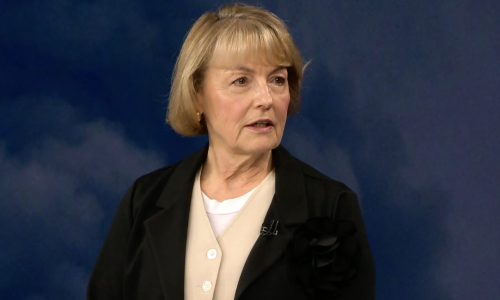Croatian Foreign and European Affairs Minister Vesna Pusic said in Prague on Monday that all problems with Germany had been solved regarding Croatia's preparedness to join the European Union that had been raised by some high-ranking German politicians.
"We have solved all problems," she told the press on the fringes of the Forum 2000 conference.
Pusic said she talked about the "distortions in the perception" of Croatia's preparedness with German Foreign Minister Guido Westerwelle and the Foreign Ministry's State Minister for Europe, Michael Link, adding that Chancellor Angela Merkel had attended a meeting of her party's parliamentary group with regard to this matter.
"The problems have been solved, the distortions have been discussed in those circles," Pusic said, adding that the ratification of Croatia's EU accession treaty in the German parliament was not in question if Croatia carried out the ten tasks outlined in a recent European Commission monitoring report.
There is rising resistance in the Bundestag to Croatia's rushed EU accession, Der Spiegel weekly said its latest edition on Sunday.
There must be no concessions only so as to give hope, said Ruprecht Polenz of the Christian Democratic Union, who chairs the Foreign Affairs Committee in German parliament. He told the weekly that Croatia's planned accession on 1 July 2013 was possible only if the next European Commission progress report was positive.
Bundestag President Norbert Lammert, who told Welt Am Sonntag two weeks ago that Croatia was not ready to join the EU, has again voiced his scepticism, said Der Spiegel.
In Prague, Pusic met with Serbian Deputy Prime Minister for European Integration Suzana Grubjesic and they agreed that the two countries would continue to cooperate in Euro-Atlantic integration.
"There is full awareness that apart from doing our own job, we are also doing an important European job, which is the stabilisation of Europe's southeast," Pusic said, adding that everything Croatia had gone through on its European path was helpful "because we are entering the Union with much less euphoria and with much more practical objectives."
"Croatia is an example of a country that will join the EU next July, while Serbia will join a little later. We are doing a big job and I have no doubt that we will do it, counting on Croatia's assistance in the future as well," said Grubjesic.
The two governments cooperate in judicial reform, agricultural preparations, and cross-border projects, and this cooperation will further intensify after the 2009 agreement on cooperation in European integration is renewed when Grubjesic visits Croatia in late November.
Asked if headway had been made in the solving of outstanding wartime issues, Pusic said she and her Serbian counterpart talked about missing persons, stolen works of art, and war crimes indictees.
The annual Forum 2000 promotes the legacy of the late Czech President Vaclav Havel, democracy, respect for human rights, development of civil society, and religious, cultural and ethnic tolerance.




































